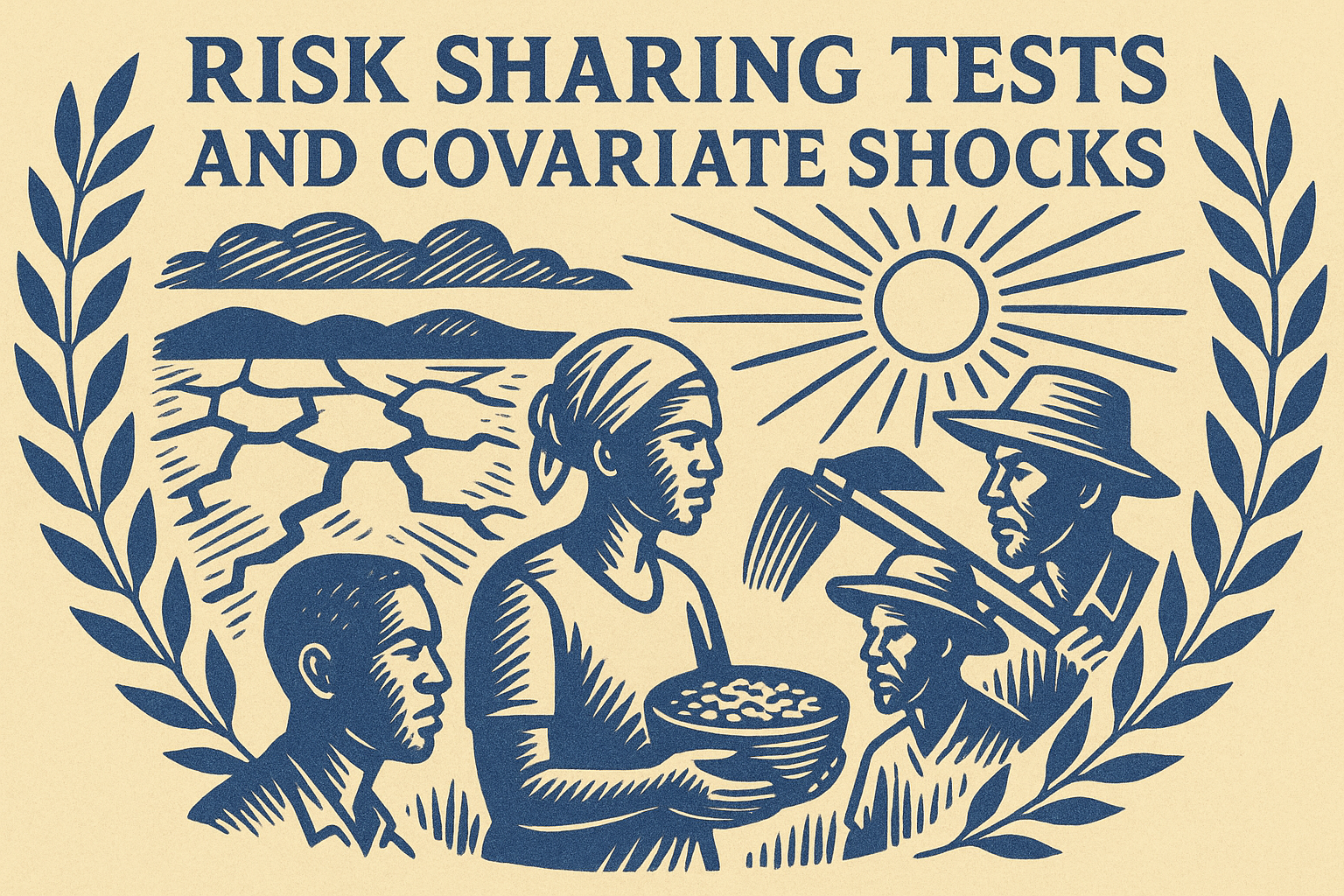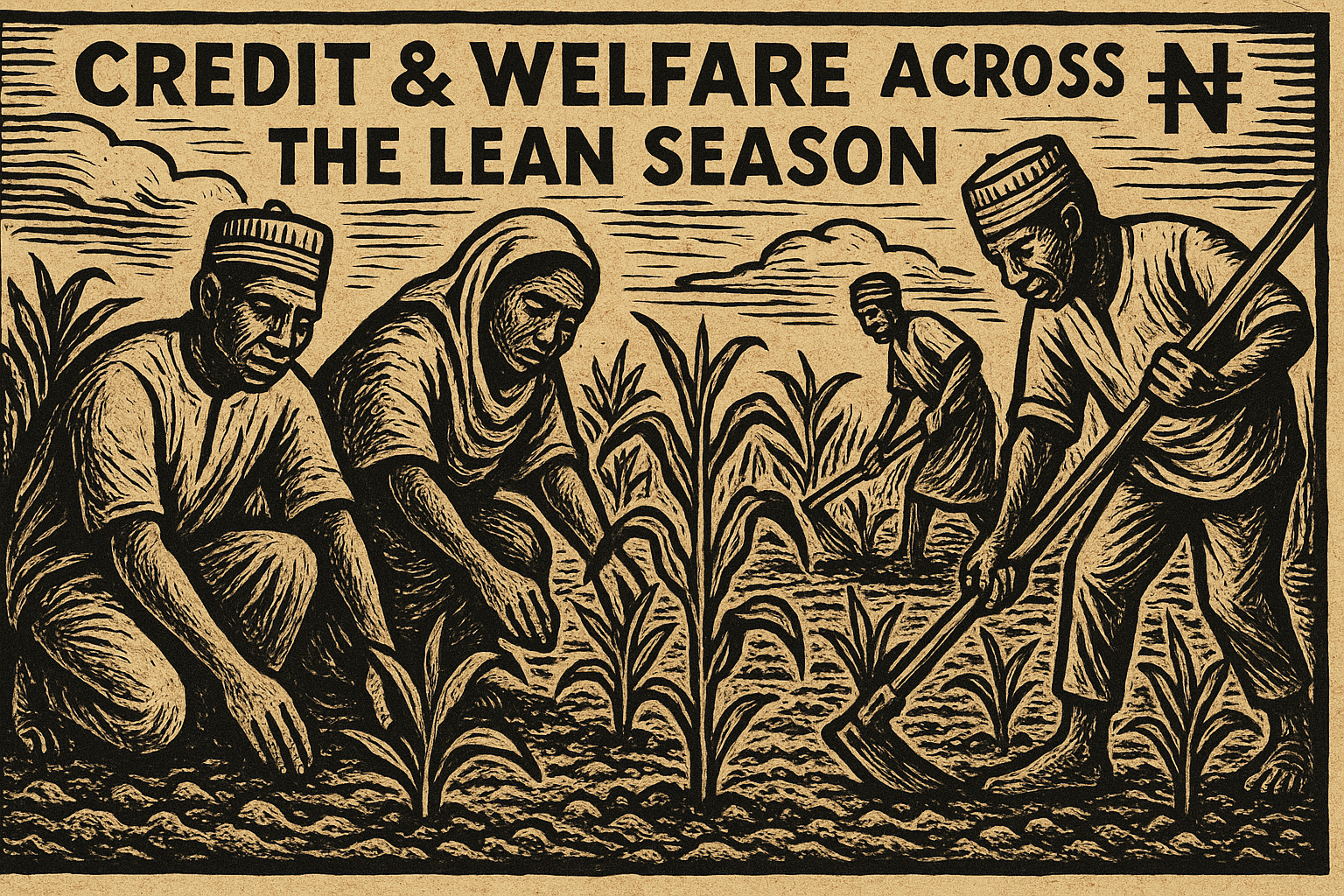
Risk-Sharing Tests and Covariate Shocks: Drought, Floods, and Pests in Uganda
"Covariate" shocks such as droughts or floods affect may affect everyone, but not everyone is affected equally. We devise ways to test the extent to which the effects of these shocks are shared. Download Paper Abstract Efficient risk-sharing implies a simple factor structure for marginal utilities of expenditure (MUEs): Pareto weights divided by a common price. The standard approach infers MUEs from total expenditures, implicitly assuming homothetic preferences, unitary income elasticities, and identical price elasticities. Risk-sharing tests using total expenditures work for idiosyncratic shocks (budgets change, but not prices), but not ``covariate’’ shocks (prices change). We describe all preferences which permit one to infer MUEs from expenditures, and estimate nonhomothetic MUEs to test whether covariate shocks are shared efficiently in Uganda. This delivers sensible results; the standard approach suggests that droughts, floods, and pests are beneficial. ...
